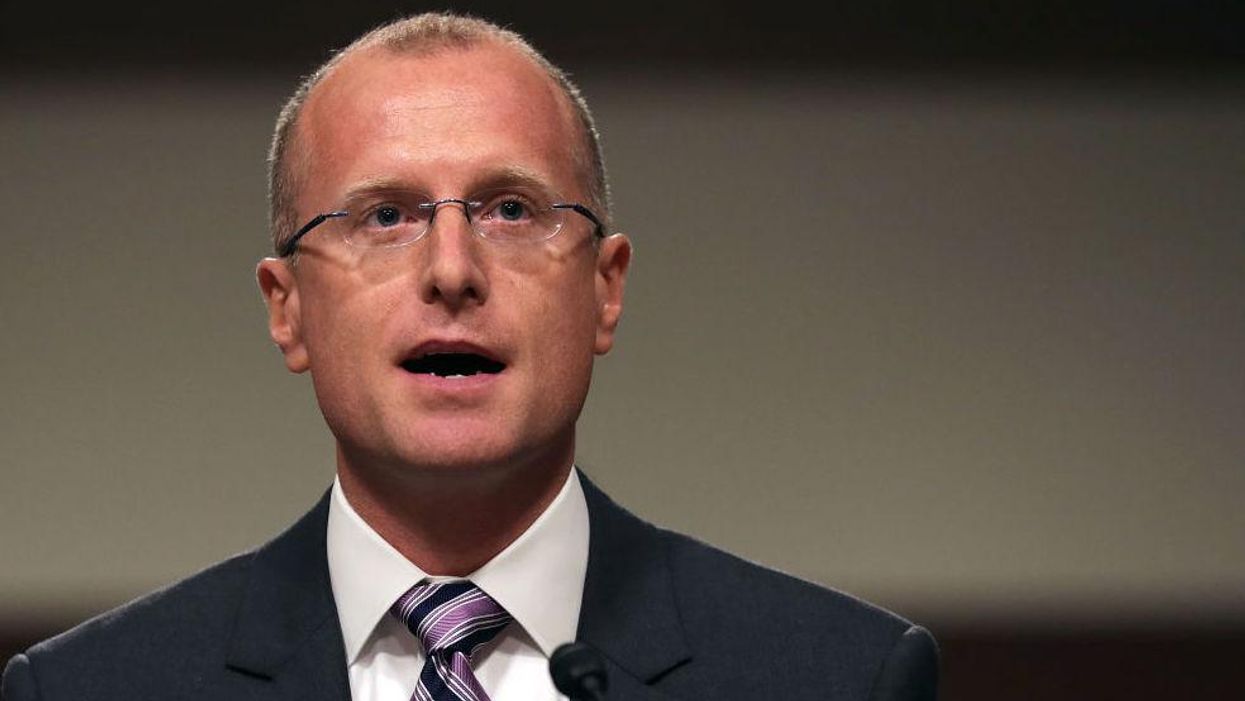
Chip Somodevilla/Getty Images

Brendan Carr, a commissioner on the Federal Communications Commission, shot down Wednesday a demand that his government agency block Elon Musk's acquisition of Twitter.
On Tuesday, the left-leaning Open Markets Institute demanded that the FCC, Justice Department, and Federal Trade Commission intervene to block Musk from purchasing Twitter.
"The Open Markets Institute believes the deal poses a number of immediate and direct threats to American democracy and free speech," the organization declared in a statement.
Barry Lynn, director of the OMI, claimed that Musk's acquisition violates several laws, most of which are more than 100 years old. But Lynn's chief complaint is that Musk's purchase of Twitter while he owns Starlink, a satellite-powered broadband internet service, violates antitrust laws.
Lynn classified Starlink and Twitter as "essential platforms," invoking antitrust legal vernacular. Some legal scholars argue that digital behemoths like Google, Facebook, Amazon, Comcast, Verizon, etc. essentially should be considered like the railroads of the 19th century, thus expanding the essential facilities doctrine to Big Tech.
Carr, who has served as an FCC commissioner since 2017, decisively rejected OMI's demand.
"The FCC has no authority to block Elon Musk’s purchase of Twitter, and to suggest otherwise is absurd," Carr said in a statement. "I would welcome the full FCC making it clear that we will not entertain these types of frivolous arguments."
Carr is one of four FCC commissioners (the fifth commissioner seat is currently vacant).
While the question of expanding the essential facilities doctrine to digital platforms is being debated in scholarly circles, a recent case demonstrates that federal courts do not yet apply the doctrine to Big Tech.
When AT&T attempted to buy Time Warner in 2017, the Justice Department sued, claiming the acquisition would harm American consumers because of the size and scope of both company's holdings.
But a federal district judge disagreed, ruling in 2018 that the merger would not violate antitrust laws. The Justice Department appealed the decision, and the D.C. Circuit Court of Appeals unanimously upheld the lower court's decision. The Justice Department declined to appeal to the Supreme Court.